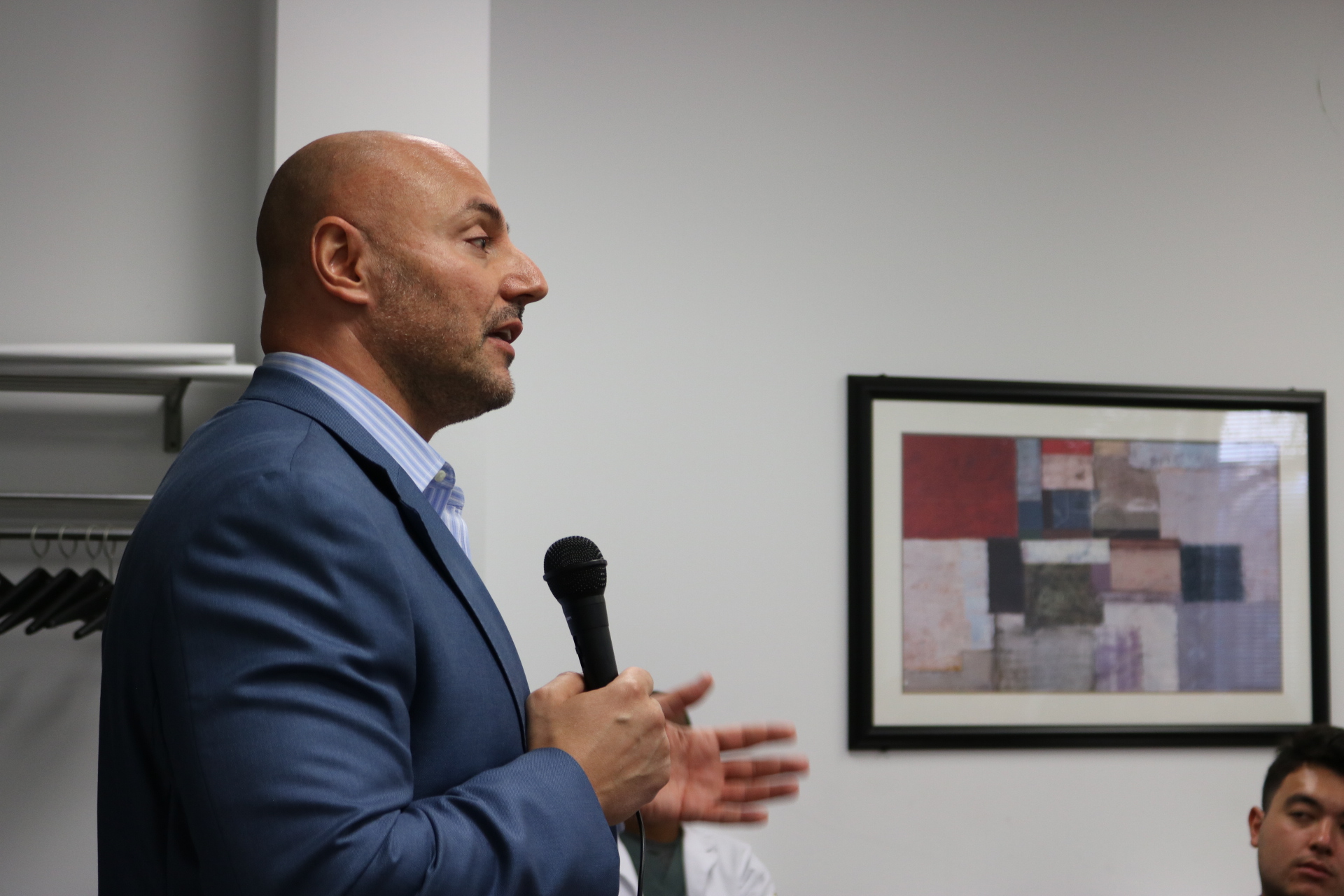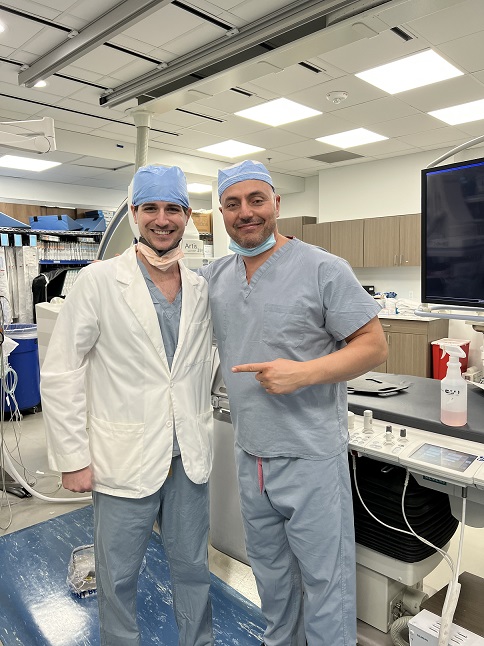Early in his life, Mahir Elder, M.D., Res. '02, Fel. '05, '06, knew he wanted to be a part of something bigger: he wanted to be a part of a physician community that not only had the best interests in mind for patients and their care, but also advocated for them.
"There are very few professions that build upon trust and integrity," Dr. Elder said. "Medicine is one of those fields where you can meet someone for the first time and they're complete strangers, however, they automatically trust you. That's just a beautiful responsibility to have."

Born and raised in metropolitan Detroit, Dr. Elder took his dream of becoming a physician all the way to the American University of the Caribbean School of Medicine in Coral Gables, Fla., where he received his undergraduate medical education. He then returned to Michigan to complete his residency in Internal Medicine at the Wayne State University School of Medicine, followed by two fellowships in cardiology and interventional cardiology at the Detroit Medical Center.
As a practicing interventional cardiologist, Dr. Elder is president of the Heart and Vascular Institute, which has locations in Detroit, Dearborn, Southfield, Warren and Wayne, and specializes in minimally-invasive procedures. He is on the board of the Pulmonary Embolism Response Team Consortium, a multidisciplinary international organization that combats pulmonary embolism and deep vein thrombosis. He has had many hospital titles, including medical director of the Cardiac Care Unit and Endovascular Medicine at the Detroit Medical Center's Heart Hospital, and associate program director of the Intervention Cardiology Fellowship Program there. Dr. Elder understands that health care coverage can play an important role in a patient's outcome, which is why he offers his services to both insured and uninsured patients. "It's not a right to be a physician, it's a privilege," he said.

Dr. Elder has received numerous awards and is in high demand as a lecturer at national and international medical conferences. He is the only physician to have received the Crain's Healthcare Hero designation twice: he was chosen in 2012 for using catheter-assisted cardiovascular surgery to save limbs and avert amputations, and he was selected again in 2017 for his groundbreaking work in saving pulmonary embolism patients. Dr. Elder was chosen as a Top Doctor by Hour Magazine, honored as a Compassionate Doctor by the People's Choice Award, and recognized as Teacher and Mentor of the Year at the Wayne State University School of Medicine. This year, Dr. Elder was chosen as the recipient of the 2023 Lawrence M. Weiner Award, which will be presented during the Medical Alumni Reunion Weekend in April. The Lawrence M. Weiner Award, established in 1979, honors the outstanding contributions made to the Wayne State University School of Medicine by individuals who are not M.D. alumni of the School of Medicine.
Although his specialty took a long time to achieve, Dr. Elder described his time at the School of Medicine as "the best seven years." Wayne State's urban environment and the opportunities it creates to experience something new every day made all the difference in his educational pathway.
"We're very fortunate that we're around university systems that help the sickest of the sick patients. The urban medicine we get exposed to is really second to none," Dr. Elder said. "What's nice about urban medicine is that if you show interest, you can really continue to advance your training and bridge the disparities of care."
Dr. Elder attributes a significant part of his career to the exposure he had during his residency and fellowships at Wayne State. His formative training experiences, as well as his concern about the rising cost of medical education, inspired him to establish the need-based Mahir Elder, M.D., Endowed Scholarship in the School of Medicine.
"If I did have a scholarship during medical school, it would have gone a long way. Philanthropy is a key part of training for medical students, and if I can relieve some of their burden by offering financial support, that translates to the wellbeing of students," Dr. Elder said.
In addition to Dr. Elder's generous giving to the School of Medicine, he serves students in many capacities— as a clinical professor of Internal Medicine and as a proud board member of the Medical Alumni Association. Most recently, he participated in the Medical Alumni Association Medical Specialty Lunch and Shadowing programs, and has also created a medical student shadowing program for School of Medicine students within his practice. His direct involvement has greatly emphasized the importance of offering financial support through scholarships.
"If you foster the medical students, it will really help them accomplish their goals and mission," Dr. Elder said.
To learn more about how to support the School of Medicine, or to establish a similar scholarship, contact Kelley Denk in the Office of Development and Alumni Affairs at kdenk@med.wayne.edu.